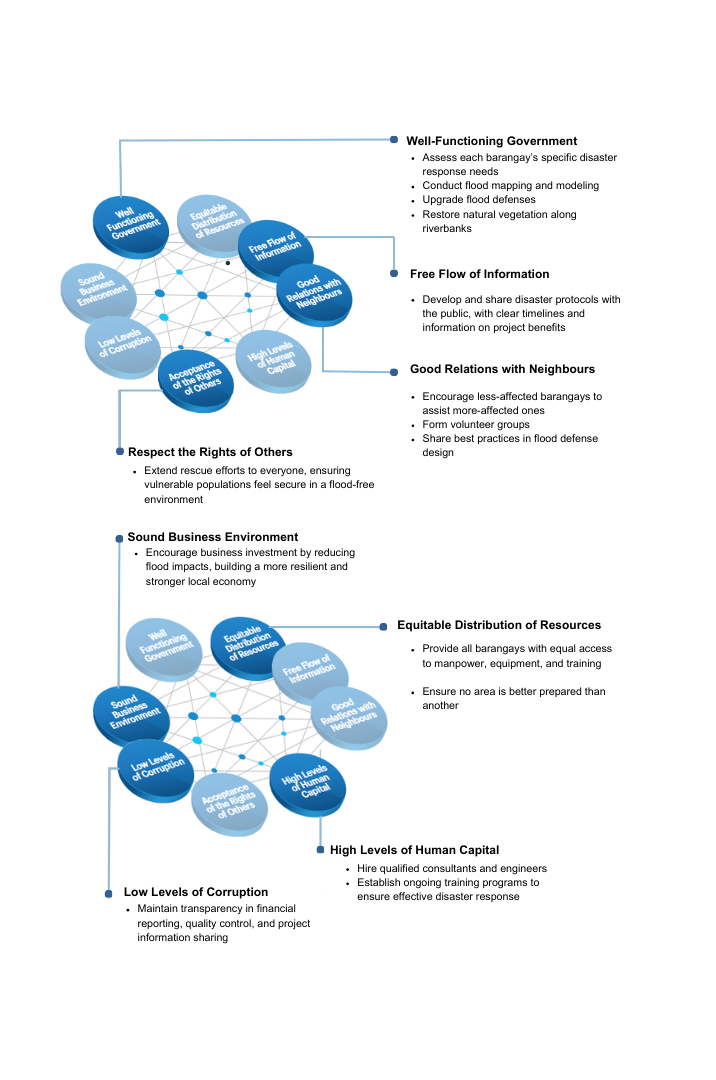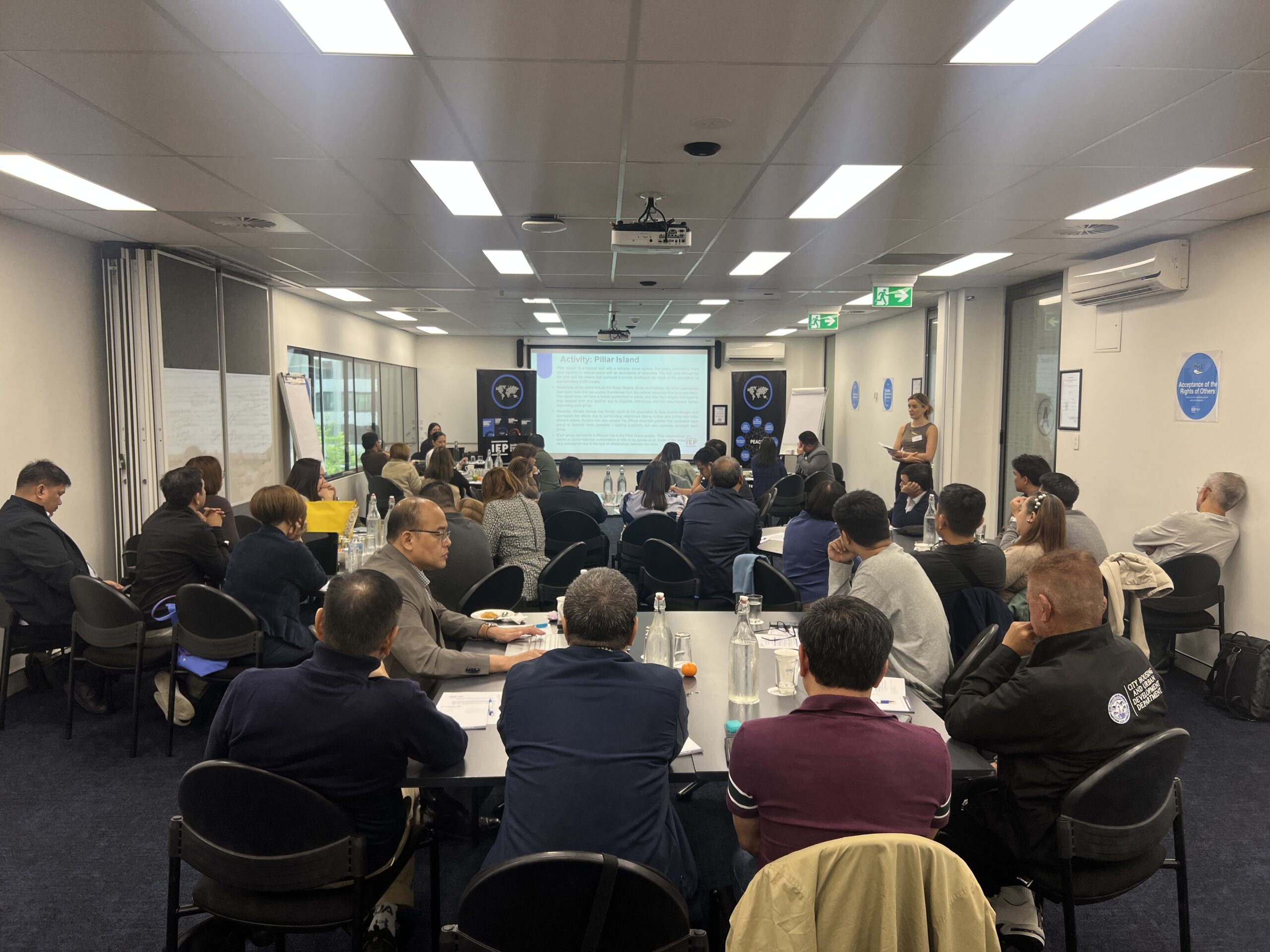The Artex Compound is often called Malabon City’s own Venice. Although this former textile housing project has been fully submerged in water since 2004, its residents have learned to manage their daily lives in the presence of water. Building stilted homes and swapping cars for boats to navigate flooded streets may become a reality for more residents. Yet, Malabueños remain determined to strengthen their city’s resilience against natural disasters.
According to the Institute for Economics & Peace’s (IEP) Ecological Threat Report 2024 (ETR), there are areas in almost every global region that face elevated risk from natural events. The Southeast Asian island nation of the Philippines is one such region. As the effects of climate change become more prominent, this impact is likely to increase. On average, South Asia recorded the second highest overall ETR score, driven by its impact of natural events scores, which are the highest of any region. Natural events such as floods, hurricanes, and other sudden shocks exacerbate other ecological threats, particularly resource scarcity.
Malabon City, located in north Metro Manila, Philippines, experiences frequent flooding attributed to rising sea levels. All 21 barangays, or neighbourhoods, are located in flood-risk zones, posing a threat to all community members. Despite the prevalence of climate-related issues, under the leadership of Mayor Jeannie Sandoval, the city has implemented innovative resilience strategies, from sustainable housing projects to extensive flood control initiatives.
Demonstrating the city’s continued commitment to fostering sustainability, inclusivity, and community welfare, 37 Malabon City Government officials travelled to Sydney, Australia with the purpose to learn about Positive Peace and sustainable tourism. From October 24-25, IEP successfully ran the Positive Peace Professional Development Programme with Malabon City officials. Across the two-day period, participants explored the strengths and weaknesses of Malabon City using IEP’s innovative Positive Peace Framework. This culminated in the development of strategic Positive Peace interventions focused on increasing natural disaster preparedness.

One expectational initiative focussed on increasing the city’s barangays’ resilience to flooding using the Eight Pillars of Positive Peace.

This comprehensive solution to mitigate flood risk through the Positive Peace Framework was brought back to the Philippines and shared with fellow government officials. Malabon City is a pioneering local government, as it is the first to participate in one of IEP’s Positive Peace trainings. This initiative is part of a broader effort by IEP to establish strong, collaborative relationships in the Philippines government. By working alongside Malabon’s officials, IEP hopes to pave the way for future partnerships with other governments seeking to boost resilience.
By building a network of empowered government officials trained in Positive Peace, Malabon City is not only better prepared for present challenges but also equipped with the tools to thrive in the face of future adversity.
“Always think outside the box,” remarked one participant. “Our programmes and policies should not stop at the implementation but should cover things or ideas that will help it flourish for future generations. Go out of your comfort zone and be critical.”
The Positive Peace Professional Development Programme delivered measurable successes in helping to build a sustainable and resilient environment in Malabon City through the application of systems thinking and Positive Peace. Participants’ knowledge of fundamental Positive Peace concepts saw significant improvements, with top scores for their understanding of systems thinking rising from 27% to 80%. Participants returned to Malabon city well equipped to incorporate systems-based approaches into their peacebuilding and community resilience efforts.
The program also succeeded in building participants’ practical assessment skills, with high ratings in community assessment competency rising from 30% to 77%. By the end, 100% of participants expressed confidence in designing Positive Peace interventions, a remarkable shift from the initial 65.6%, underscoring officials’ readiness to apply these principles within Malabon City.

As revealed by IEP’s Positive Peace Report 2024, “social systems that operate with higher degrees of Positive Peace are more resilient and capable of offering effective protection to their citizens against adverse shocks, whether political, environmental, or economic.” Positive Peace provides a practical and transformative framework to strengthen communities, build cohesion, and equip leaders with the skills and strategies needed to make lasting, impactful change.
If your organisation or government is committed to building this capacity among your staff, we invite you to connect with us. Through Positive Peace, you can create a more resilient and sustainable future.